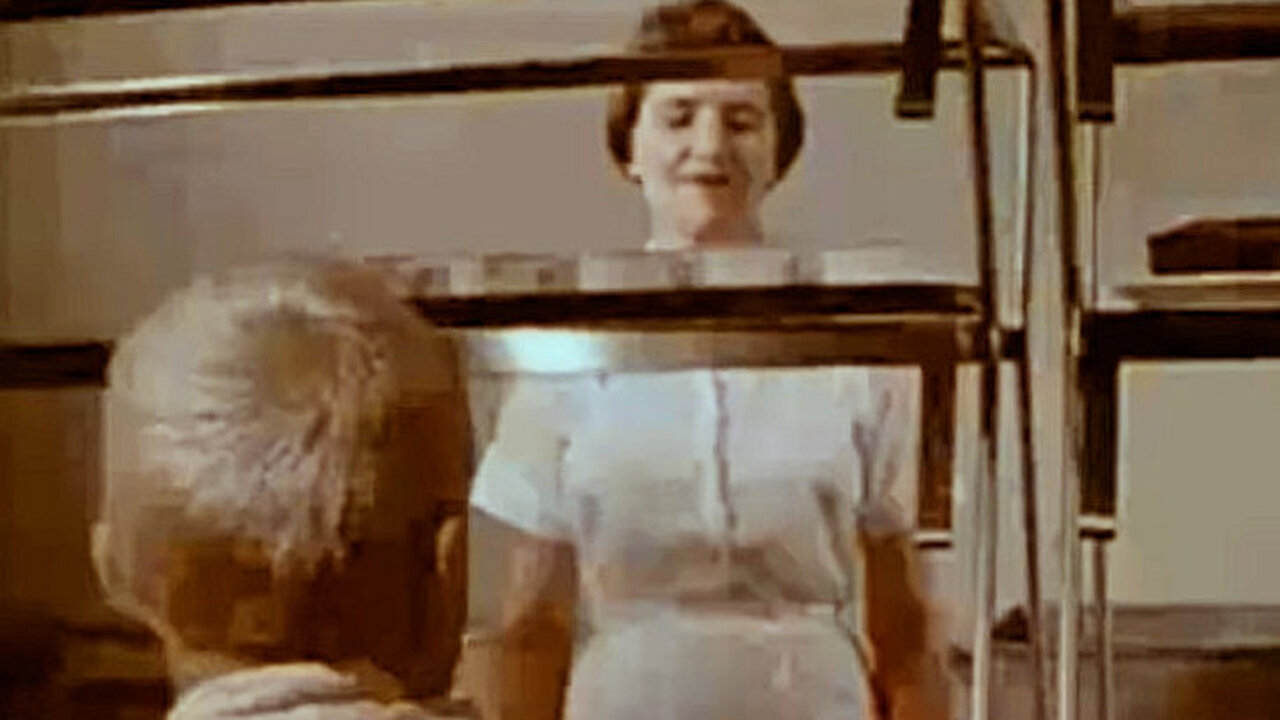Premium Only Content

MR BUNGLE GOES TO LUNCH | Lunchroom Manners (1959) | Don't Be A Mr. Bungle
Mr. Bungle Goes To Lunch - The original 1959 Coronet educational production: "Beginning Responsibility: Lunchroom Manners."
This film has a cult following since it appeared on a Pee Wee Herman HBO special.
Are these films sometimes cheesy, unintentionally funny, outdated, and a little slow-moving for our frantic attention spans of today? You bet! Despite this, I’m an unabashed fan of these old school social guidance films. I appreciate their earnestness in a time of tiresome irony. I appreciate the idea that there is a right and wrong way to do things, and that we all have a role in choosing the former and strengthening society.
In this film, 'Beginning Responsibility: Lunchroom Manners,' the rude, clumsy puppet, Mr. Bungle, Shows kids how to behave in the school cafeteria.
Social guidance films such as Mr. Bungle, had their heyday from about 1945-1960, and were born from filmmakers’ genuine concern for the happiness and well-being of the rising generation. It’s sobering when you think that a fifteen-year-old in 1945 had known nothing but the Great Depression and a World War since their birth. Adults were worried that the young people who had faced such hardship would end up like the Lost Generation that emerged after WWI – cynical, jaded, and amoral. Filmmakers wanted to provide young people with some helpful guidelines that could aid them in socializing, finding happiness, reaching their potential, and becoming involved citizens who were able to navigate an increasingly complex world. The films touted the benefits of responsible, clean-living both for the individual and for society as a whole. Having just won a war by pulling together as a nation, people were highly optimistic about the virtues of civic-mindedness and solidarity.
While the films can seem naive, preachy, and conformist (and the ones aimed at girls, sexist) to a modern viewer, they were not made by hand-wringing fuddy-duddies. Their producers were liberal in their day; it was conservative parents who thought moral instruction should be left to parents and that schools should stick to the three Rs. Instructional filmmakers, on the other hand, thought that “Hollywood-style” films would add needed reinforcement to the advice kids got at home. Each film was made with the guidance of an “educational collaborator:” professors, sociologists, and psychologists who provided input in the hopes of making the advice more “academic” than knee-jerk. The use of charts and graphs was popular.
Interestingly enough, the founder of the most prolific and famous social guidance film studio — Coronet Films — was David Smart, who also created Gentleman’s Quarterly (GQ) and Esquire. Smart was a big believer in the power of instructional films and took the money he made on his magazines and poured it into building the Coronet studio in a suburb outside of Chicago. With two sound stages, the million-dollar studio was the largest east of Hollywood.
Social guidance films might seem hilariously corny today, but their producers sincerely wanted to reach young people who were searching for how to be a good person and live a satisfying life. The films were the first ones to depict everyday life from the teenagers’ point of view, and believe it or not, the producers’ goal was to make them as realistic as possible; the films couldn’t change behavior, they believed, unless the viewer identified with the characters. Most films begin with a young person facing a dilemma or difficult situation, and over the course of about ten minutes, he learns something new, does some self-analysis on how he can change, and then turns things around for himself; the films were novel in that they showed the characters developing as opposed to being strictly one-dimensional.
By the 1960s, the earnest style of social guidance films no longer fit into the changing culture, and instructional film studios limped into the next decade by producing pieces on driving safety and drugs before shuttering altogether. Some instructional films are owned by modern education companies and live on in university archives, but hundreds were thrown away and are lost forever.
About Our Nostalgic Memories:
We all come from different times and places, but there are commonalities, or threads, that bind us and bring us closer to one another. Let us rejoice in the simple days of the past. Our Nostalgic Memories is dedicated to remembering the best of times and the best of people.
Be sure to LIKE AND SUBSCRIBE to our channel here on YouTube. You can also find us on Facebook: https://www.facebook.com/OurNostalgicMemories
Our Nostalgic Memories intro music:
Jumpin Boogie Woogie by Audionautix is licensed under a Creative Commons Attribution license (https://creativecommons.org/licenses/by/4.0/)
Artist: http://audionautix.com/
#MrBungle #MrBungleGoesToLunch #LunchRoomManners #1959 #PeeWeeHerman #PeeWee'sPlayhouse #1950sManners #OurNostalgiMemories #1950sNostalgia #1950sEducational #CoronetFilms
-
 2:50:50
2:50:50
TimcastIRL
5 hours agoTrump Deploys National Guard To DC, Federalizes Police, Liberals Protests Take Over| Timcast IRL
194K62 -
 2:27:36
2:27:36
Barry Cunningham
8 hours agoBREAKING NEWS: PRESIDENT TRUMP ABSOLUTELY NUKED WASHINGTON D.C. AND THE MEDIA!
66K40 -
 LIVE
LIVE
Drew Hernandez
9 hours agoTRUMP'S DC TAKEOVER & ISRAEL KILLS AL JAZEERA TEAM AHEAD OF GAZA INVASION
616 watching -
 1:19:05
1:19:05
Glenn Greenwald
6 hours agoTrump's DC Takeover: Is it Legal? Israel Kills More Journalists, Including Anas al-Sharif; Glenn Reacts to Pete Buttigieg and JD Vance on Israel | SYSTEM UPDATE #501
129K109 -
 44:40
44:40
Katie Miller Pod
5 hours ago $4.46 earnedEpisode 1 - Vice President JD Vance | The Katie Miller Podcast
46.9K12 -
 13:09:34
13:09:34
LFA TV
1 day agoLFA TV ALL DAY STREAM - MONDAY 8/11/25
224K20 -
 1:44:36
1:44:36
RiftTV
7 hours agoBREAKING: Trump FEDERALIZES D.C. To RESTORE Law & Order | The Rift | Ryan Matta, Olivia Krolczyk + Braeden Sorbo
61K16 -
 3:00:47
3:00:47
megimu32
5 hours agoOTS: Breakfast Nostalgia + Blind Chocolate Cereal Showdown… LIVE! 🍫🥣
49.5K2 -
 3:36:47
3:36:47
LIVE WITH CHRIS'WORLD
13 hours agoLIVE WITH CHRIS’WORLD - It’s Called LAW & ORDER
40.1K4 -
 11:07
11:07
AlaskanBallistics
1 day ago $1.50 earnedBreek-Lok Quick Detach Hub Mount and Flash Hider System Review
32.7K5